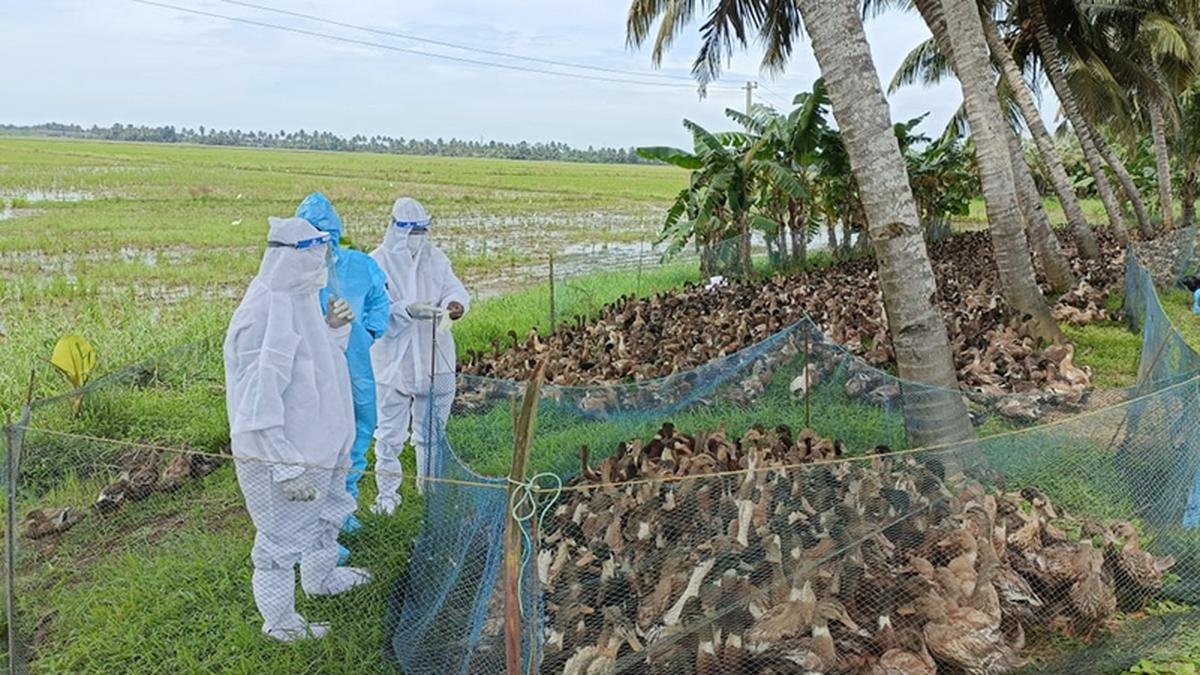Avian flu pandemic : Avian Flu Is it the Next Human Pandemic?
The outbreak of Avian Influenza or bird flu has been reported in several states of India, causing concerns for the potential of a human pandemic. In this article, we will explore the current situation, the risks, and what you need to know.
Avian flu is a highly contagious viral infection that spreads rapidly in birds. The H5N1 strain of the virus can cause severe illness and death in humans. The outbreak of bird flu has been reported in many states of India, and it has raised concerns about the potential for a human pandemic.
The Indian government has taken several steps to control the outbreak, including culling of birds, surveillance, and disinfection of the affected areas. But there are still concerns about the spread of the virus, especially in densely populated areas.
The World Health Organization (WHO) has warned that bird flu could cause the next human pandemic, with the potential to be more deadly than COVID-19. While the virus does not transmit easily from birds to humans, it can cause severe illness and death when it does.
The outbreak of bird flu has raised concerns about the potential for a human pandemic. The virus can mutate quickly, and there are fears that it could become more contagious and deadly to humans. It is important to monitor the situation closely and take necessary precautions.

Why this News is important:
The outbreak of Avian Influenza or bird flu has been reported in several states of India, raising concerns about the potential for a human pandemic. This news is important because the Avian flu has the potential to cause severe illness and death in humans, and there are concerns about the spread of the virus, especially in densely populated areas. The World Health Organization has warned that bird flu could cause the next human pandemic, with the potential to be more deadly than COVID-19. Therefore, it is important to understand the current situation, the risks, and what you need to know.
Historical context:
Bird flu outbreaks have been reported in India in the past, with the first case reported in 2006. The H5N1 strain of the virus has caused several outbreaks in the country, with the most recent outbreak reported in 2021. The virus has also caused outbreaks in other countries, including China, Indonesia, and Egypt. The first outbreak of bird flu in humans was reported in Hong Kong in 1997, and since then, there have been several outbreaks in humans in different parts of the world.
Key takeaways from “Avian Flu: Is it the Next Human Pandemic?”
| Sr. No. | Key Takeaway |
|---|---|
| 1. | Avian flu is a highly contagious viral infection that spreads rapidly in birds. |
| 2. | The H5N1 strain of the virus can cause severe illness and death in humans. |
| 3. | The outbreak of bird flu has been reported in many states of India, and it has raised concerns about the potential for a human pandemic. |
| 4. | The World Health Organization has warned that bird flu could cause the next human pandemic, with the potential to be more deadly than COVID-19. |
| 5. | It is important to monitor the situation closely and take necessary precautions to prevent the spread of the virus. |
In conclusion, the outbreak of bird flu in India has raised concerns about the potential for a human pandemic. The virus can cause severe illness and death in humans, and there are fears that it could become more contagious and deadly. It is important to monitor the situation closely and take necessary precautions to prevent the spread of the virus. The Indian government has taken several steps to control the outbreak, including culling of birds, surveillance, and disinfection of the affected areas. It is important for individuals to take precautions such as avoiding contact with sick birds, washing hands frequently, and seeking medical attention if they develop flu-like symptoms. The key takeaway from this news is that while the risk of a human pandemic is still low, it is important to remain vigilant and take necessary precautions to prevent the spread of the virus.
Important FAQs for Students from this News
Q. What is avian flu?
A. Avian flu is a viral infection that primarily affects birds, but it can also infect humans and other animals.
Q. How does avian flu spread to humans?
A. Humans can get avian flu by coming into contact with infected birds or their droppings, or by consuming contaminated poultry products.
Q. What are the symptoms of avian flu in humans?
A. The symptoms of avian flu in humans are similar to those of regular flu and include fever, cough, sore throat, and muscle aches. In severe cases, it can lead to pneumonia and respiratory failure.
Q. What precautions can individuals take to prevent the spread of avian flu?
A. Individuals can take precautions such as avoiding contact with sick birds, washing hands frequently, and seeking medical attention if they develop flu-like symptoms.
Some Important Current Affairs Links

















